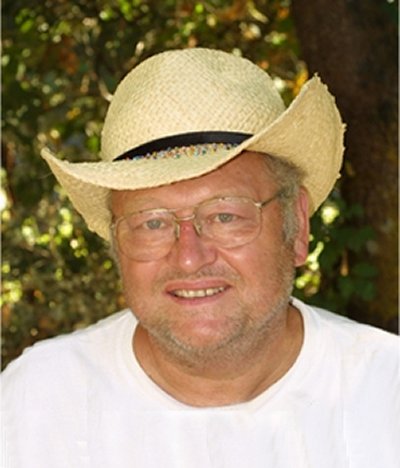
SECOND QUARTER, MAY 2005 VOLUME 19, NUMBER 9
The Karuk litigation is an ongoing case where the Karuk Tribe of California has filed a lawsuit in federal court attempting to prevent the U.S. Forest Service (USFS) from approving or allowing mining (dredging, sluicing, panning, etc.) in-stream or near a watercourse (“Riparian Reserve”) in the Klamath National Forest without requiring a plan of operations, reclamation plan, and reclamation bond, preparing an environmental assessment or environmental impact statement reviewing the individual and cumulative impacts from proposed mining in Riparian Reserves, and going through an extensive consultation process with other federal agencies pursuant to the Endangered Species Act.
The New 49’ers filed a motion with the federal court to intervene in this litigation on the grounds that the miners need to be heard, since it is our rights that are being contested in the litigation. The judge has granted our intervention-status over strong objections voiced by the Karuks. So, we are now directly involved in the litigation.
However, even before our intervention status was approved, The Karuks and USFS signed a partial settlement agreement whereby the USFS has conceded that, by law, they cannot approve an Operating Plan within any area where a listed species (threatened or endangered) exists, without first going through an extensive consultation process with other federal agencies (can take years to complete). In the settlement, the USFS has agreed to not approve any more Operating Plans before going through consultation when it is required.
Existing 36 C.F.R. Part 228 mining regulations allow the District Ranger to use his or her own discretion, based upon the best advice of his or her staff and other experts, to decide what type of mining activity will likely cause a significant disturbance of surface resources. A Ranger’s determination of a significant disturbance requires a formal Operating Plan to be filed by the miner – which will now trigger the lengthy consultation process with other agencies.
Generally, District Rangers have determined that hand-mining and suction dredging activity conforming to state regulations do not rise to the level of a “significant disturbance.”
However, on April 29, the Karuks filed a Motion for Summary Judgment and Injunctive Relief asking Judge Saundra B. Armstrong in Oakland, to decide otherwise. The Karuk’s position is that without first going through a full consultation process, the USFS is not qualified to determine there will not be a “significant impact” upon any existing listed species. Therefore, they argue, the Judge should prohibit the USFS from allowing any type of mining activity in Riparian Reserves in the Klamath National Forest without requiring a plan of operations, reclamation plan, and reclamation bond, preparing an environmental assessment or environmental impact statement which reviews the individual and cumulative impacts from proposed mining in Riparian Reserves, and going through an extensive consultation process with other federal agencies pursuant to the Endangered Species Act.
In short, the Karuks are asking the judge to overturn existing Section 228 regulations concerning mining in the Klamath National Forest.
As the Karuks do not distinguish any difference in their summary judgment motion or other moving-papers in the lawsuit between hand mining (panning, etc.) from mechanized mining (bulldozers), we are presuming they are asking the judge to stop all forms of mining or prospecting activity in Riparian Reserves in the Klamath National Forest.
The hearing for the Karuk’s motion is currently set for 21 June of this year, and the judge has agreed to issue her decision before July 1. The New 49’ers are actively working on a response opposing the Karuk’s motion for summary judgment.
The decision on this motion will likely have an impact upon other national forests on the West Coast of the United States.
In view of the USFS concession concerning the requirement of consultation to support any Operating Plan, we do not feel very comfortable that it will mount an adequate defense to this latest motion, either. I think it is safe to say that much of the small-scale mining as we know it in America hangs in the balance on this one decision that will happen in just a few short weeks from now.
Naturally, these proceedings have caused different USFS land-managers to be uncertain how to administer small-scale mining programs. This slows down the process, or stops it altogether in some places.
I feel it is important to point out that the attack against mining is coming from organizations outside of government, that do not want to see miners in the National Forest anymore. The USFS is caught in the middle. Under the circumstances, there is no clear-cut correct answer to anything. So we need to patiently wait-out the system and keep our sights on the long-term. The mining law has always vindicated the rights of miners. It is not over until it is over! Let’s keep our chins up and be effective.
With a little luck, Judge Armstrong will decide in our favor and give the USFS some direction about how to exercise the discretion granted to them by Congress. That could actually make things better for us.
Legal Fund Needs Replenishment
Without access to legal-funds, we could not counter anti-mining activists in court. So we must replenish the fund as it gets used up. Just a little help from everyone is all that it takes to keep us in the game with really good attorneys. Fortunately, to date, our continued requests for replenishment have been answered by members and other concerned
people within the industry.
Once again, I am requesting anyone and everyone who is able, to please send in a $10 donation to help replenish the legal fund. Checks can be made out to New 49’ers Legal Fund, P.O. Box 47, Happy Camp, CA 96039. The girls in the office (530 493-2012) will also process credit or debit cards, or receive payment through PayPal. There are also Paypal “donation” buttons on the New 49er’s message forum as well as the Alaska Gold forums for your convenience.
Thanks for whatever you can do to help. We would not be able to do this without your support. Together, we are defending against one of the most serious threats to our industry that has been mounted in a very long time
2005 Program Approved on Klamath River
The Happy Camp Ranger District is allowing continued mining activity by New 49’er members under a formal Notice of Intent that has been provided by the Club on behalf of any members who wish to operate in conformance with our Operation Guidelines. Other than not dredging within a few hundred feet of Kinsman Creek (coldwater refugia), the guidelines presently are the same as what we had last year. You can obtain a copy from our office in Happy Camp (530 493-2012) or by visiting our web site.
What this means is that members who are willing to operate within our published guidelines are already covered by the Club’s formal Notice of Intent with the Happy Camp Ranger District, so it is not necessary for you to provide separate notice of your activities to the Forest Service. Basically, you just need to show up, register your presence with our office, and go to work.
Any members wishing to operate outside of our published guidelines are required to negotiate your own way, if necessary, with the federal authorities.
The Happy Camp Ranger District now covers all of the Klamath River from the mouth of Dillon Creek to Ash Creek – which is located around 5 miles downstream from Interstate 5. Happy Camp also administers Indian, Elk and Thompson Creeks. These waterways include the bulk of the mining property available to our members through our organization.
Some members have started the season early and are already actively prospecting along the Klamath River.
We are being told by the USFS that the Scott and Salmon River Ranger District (based in Fort Jones) is also going to sign-off on the formal Notice of Intent we have provided on behalf of our members. However, nothing is certain until we actually see it in writing. We learned last year to not rely upon assurances given to us until we actually them in writing.
There is no firm response yet from the District in Orleans about how they will administer mining on the lower Salmon River this year. A new District Ranger, Bill Rice, will take over on May 15. While there is still plenty of time before the dredging season begins there on 1 July, based upon how they did things last year in Orleans, I suggest it is probably better to not plan on their signing off on any Notice of Intent that we would provide on behalf of members.
This means that, unless things change, members wishing to prospect or mine along the lower Salmon River will likely need to manage your own individual relationships with the Forest Service down there.
In this event, I highly recommend that you carefully read the controlling decisions by the federal Court in Lex & Waggener and Terry McClure. While I am not an attorney, my own understanding of the judge’s decision in the McClure case just a few months ago is that the USFS cannot impose any penal authority upon small-scale miners (hand-miners and/or dredgers under the California regulations) who are prospecting on USFS land without an approved plan of operations.
If my understanding is correct, to stop mining activity that it does not approve of, it will now be necessary for the USFS to find some other punitive regulation, enact a new punitive regulation, or prove in civil court that the miner is creating significant disturbance of surface resources. It seems to me that the latter would be difficult to do, because the State of California is actively licensing suction dredging, based upon a formal finding of a non-significant impact. I would be surprised to see the USFS attempt to challenge an activity in civil court that has been approved and licensed by the State of California.
Although I must admit that I was very surprised that they challenged Terry McClure in court in last year. We live in very interesting times!
Really, the best solution all around is to create a set of guidelines we can all agree to, that allow small-scale miners to operate within bounds that are generally agreed to not create a significant disturbance. This has always been the purpose of our Operation Guidelines. Hopefully we will return to this soon in all areas where we make properties available to members. Meanwhile, because of the ongoing litigation, we will just have to cope with some confusion and uncertainty.
As the USFS is presently proceeding in such a manner as to allow our mining activity under the Notices we have provided them, we are moving forward with plans to manage a normal, full season in 2005. What else can we do?
See you out on the river,
Dave McCracken
General Manager












